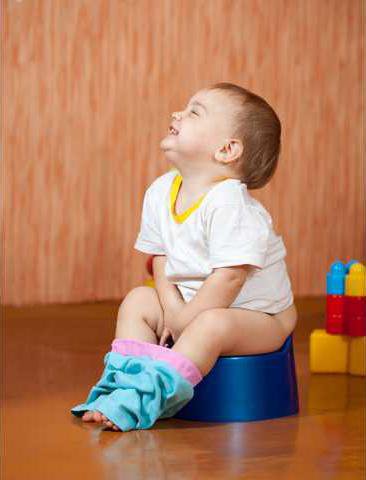Parents are encouraged to teach their little boys how to use the bathroom by sitting first, before standing. For this reason, many parents choose to use a reduced toilet seat with a splash guard to teach their little guys how to go to the bathroom. However, there are certain safety precautions you need to be aware of when choosing a training seat specifically regarding which seat you choose.
In June, a little boy in Riverside, California got his genitals stuck in the splash guard of the WeePOD Basix Potty Ring causing severe cuts and nearly dismembering him. The boy had to be taken to the emergency room to be glued back together. The family, who chose to remain anonymous, is suing Target because the store claimed the product was safe even though they were aware of prior claims that this toilet seat, manufactured by Prince Lionheart, mutilated a child.
For example, in 2015, a parent in Virginia reported a similar incident with Prince Lionheart's product. Allegedly, the parent left a comment on Target's website about the incident. The comment, which has now is no longer available, due to "Target's malfeasance" read: "My 4-year-old son was going to the bathroom on his wee pod basix potty seat and when he stood up he started screaming. He had a nasty cut on the base of his penis and it was bleeding a lot. My husband and I cleaned him up and took him to the doctor.
"When we got home I examined the seat and the bottom edge is actually very sharp and just sliced open the very sensitives in in that area. This has been horribly traumatic for him and could have been so much worse."
Attorney John Kristensen, who is handling the case against Target and Prince Lionheart stated, Target and Prince Lionheart knew there were problems with this defective potty-training device, knew of prior complaints but refused to take the product off the shelf. They had a duty to warn customers about the dangers of their WeePOD product. Their failure to do so was reckless and led directly to the mutilation of my client.
The product is still available on Target's website and currently has almost a 4-star rating. Both Target and Prince Lionheart maintain that product safety is a priority to them. On Dec. 22, 2017, a representative of Prince Lionheart commented to Good Housekeeping, "We take the safety and comfort of the children and parents who use our products very seriously, and all of our products have been subjected to rigorous third party testing to ensure their safety when used in a manner consistent with our instructions and warnings. We're a family-owned and operated business and have been making products for babies and young children for over forty years. Our practice is to design safety, quality and performance into every one of our products."
For the time being, we recommend that you check any potty-training device before allowing your kid to use it. Feel around the whole surface for sharp edges that might hurt sensitive body parts.
In June, a little boy in Riverside, California got his genitals stuck in the splash guard of the WeePOD Basix Potty Ring causing severe cuts and nearly dismembering him. The boy had to be taken to the emergency room to be glued back together. The family, who chose to remain anonymous, is suing Target because the store claimed the product was safe even though they were aware of prior claims that this toilet seat, manufactured by Prince Lionheart, mutilated a child.
For example, in 2015, a parent in Virginia reported a similar incident with Prince Lionheart's product. Allegedly, the parent left a comment on Target's website about the incident. The comment, which has now is no longer available, due to "Target's malfeasance" read: "My 4-year-old son was going to the bathroom on his wee pod basix potty seat and when he stood up he started screaming. He had a nasty cut on the base of his penis and it was bleeding a lot. My husband and I cleaned him up and took him to the doctor.
"When we got home I examined the seat and the bottom edge is actually very sharp and just sliced open the very sensitives in in that area. This has been horribly traumatic for him and could have been so much worse."
Attorney John Kristensen, who is handling the case against Target and Prince Lionheart stated, Target and Prince Lionheart knew there were problems with this defective potty-training device, knew of prior complaints but refused to take the product off the shelf. They had a duty to warn customers about the dangers of their WeePOD product. Their failure to do so was reckless and led directly to the mutilation of my client.
The product is still available on Target's website and currently has almost a 4-star rating. Both Target and Prince Lionheart maintain that product safety is a priority to them. On Dec. 22, 2017, a representative of Prince Lionheart commented to Good Housekeeping, "We take the safety and comfort of the children and parents who use our products very seriously, and all of our products have been subjected to rigorous third party testing to ensure their safety when used in a manner consistent with our instructions and warnings. We're a family-owned and operated business and have been making products for babies and young children for over forty years. Our practice is to design safety, quality and performance into every one of our products."
For the time being, we recommend that you check any potty-training device before allowing your kid to use it. Feel around the whole surface for sharp edges that might hurt sensitive body parts.








